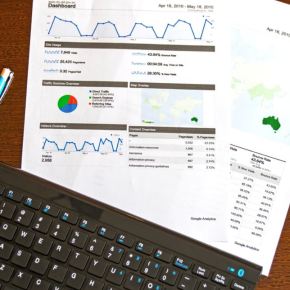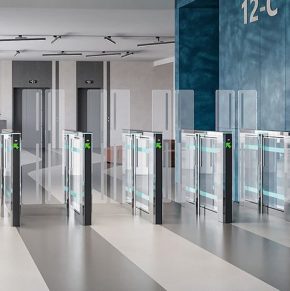
Arup report shows digital technology is reshaping the property sector
Engineering and design consultancy, Arup, has developed a new report revealing how digital technology is changing the way buildings are designed, built and used.
Embracing a digital strategy will allow companies to have a significant impact on working lives and increase its asset value and create more sustainable buildings.
The report was developed by Arup’s Digital and Foresight, Research + Innovation teams, based on Arup’s work and the development of data-driven visualisation and auralisation tools such as the Arup SoundLab.
The report predicts that physical and digital environments will merge into hybrid spaces. Buildings can better meet environmental regulations in a world where the buildings are truly intelligent. Our increasingly digitalised society will allow every element of the property development cycle to dramatically change and improve.
Key drivers underlying digital growth in the property sector are identified in the report, which touch on almost every aspect of modern life. How environmental regulation is dictating the need for buildings to be smarter and cleaner, is also highlighted in the report.
With the real estate sector consuming more than 40% of global energy, emitting 20% of total global greenhouse gasses and utilising 40% of global raw materials, property owners and managers would benefit from smart buildings and infrastructures that cost-effectively utilise resources.
Arup discusses how faster, smarter and more powerful technology is reshaping every element of the property development cycle with the property sector under pressure.
Design and construction are being affected as more immersive stakeholder engagement and intelligent decision making is enabled by artificial intelligence and machine learning collecting, visualising and analysis data. In addition, the report covers 3D cameras scanning interior environments among other virtual and augmented reality technologies.
As homes become smart homes, the world of work will inevitably change too. It is becoming just as important for the modern worker, resident or shopper to have a positive digital experience as it is physical.
Potential problems can be tracked earlier and dealt with quicker by owners, with the gathering of detailed data on properties using IoT technology and combining it with ongoing analysis. Additionally, decision making can be more strategic about asset renewal schedules and site prioritisation due to data collection and analysis across portfolios.
Data analytics combine detailed information from buildings with external data about the surrounding environment, now central to making key investment decisions.
Global Digital Services Leader at Arup, Volker Buscher explained that digital technology is redefining the property sector and bringing the potential to radically improve working lives, increase asset value and create more sustainable buildings. However, he adds, this is about strategic thinking that avoids wasting money on the wrong innovations and inefficient capital and operational expenditure, not gadgets and equipment.
Latest news

15th April 2025
West Fraser: CaberDek earns top marks from Home Counties carpentry specialist
A specialist carpentry sub-contractor covering housing sites across a large swathe of the Home Counties has come to value CaberDek from the West Fraser range for a variety of reasons: not least because the high quality panel product doesn’t destroy his operatives’ electric saws!
Posted in Articles, Building Industry News, Building Products & Structures, Building Systems, Case Studies, Restoration & Refurbishment, Retrofit & Renovation, Roofs, Timber Buildings and Timber Products, Wooden products
15th April 2025
GEZE: The Role of Access Control Systems in Enhancing Building Safety
Jane Elvins, Specification and Business Development Manager at GEZE UK, delves into the role of access control systems in enhancing building safety…
Posted in Access Control & Door Entry Systems, Architectural Ironmongery, Articles, Building Industry News, Building Products & Structures, Building Services, Doors, Facility Management & Building Services, Health & Safety, Restoration & Refurbishment, Retrofit & Renovation, Security and Fire Protection
11th April 2025
Don’t Do a Dave! It’s Time to Lock FIT Show 2025 in Your Calendar!
It’s that time again – FIT Show is back! You could be forgiven for thinking there won’t be much new to see when FIT Show returns to the NEC from 29 April – 1 May. Wrong!
Posted in Articles, Building Industry Events, Building Industry News, Building Products & Structures, Building Services, Continuing Professional Development (CPD's), Exhibitions and Conferences, Information Technology, Innovations & New Products, Restoration & Refurbishment, Retrofit & Renovation, Seminars, Training
11th April 2025
Insight Data: Boost construction success with project and prospect data
For those working in construction – in whatever capacity – the last few years haven’t been much fun. And according to the latest statistics, it would seem the challenges are continuing – Alex Tremlett, Insight Data’s Commercial Director, has more…
Posted in Articles, Building Industry News, Building Services, Information Technology, news, Research & Materials Testing
 Sign up:
Sign up: